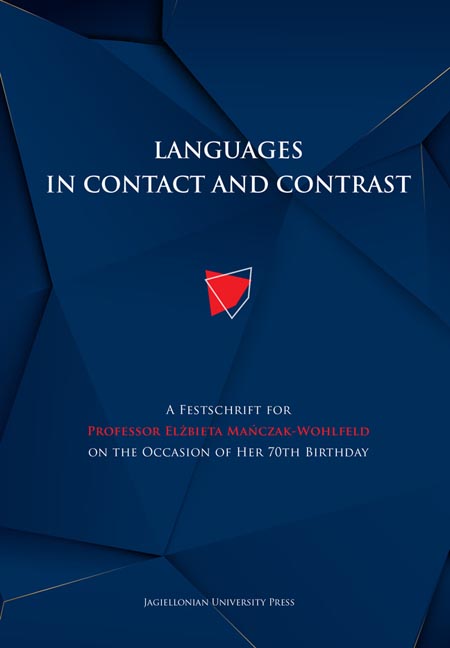 Languages in Contact and Contrast
Languages in Contact and Contrast Published online by Cambridge University Press: 14 October 2023
Introduction
In line with the growing body of research on pragmatic aspects of linguistic borrowing (see Andersen 2014; Andersen et al. 2017; Peterson and Beers Fägersten 2018), the article analyses the incorporation of the English politeness marker please into Serbian, in an attempt to account for linguistic, pragmatic and social aspects of formal and functional adaptations of please in Serbian.
Linguistic forms which serve pragmatic functions in the source language (SL), such as interjections, discourse and politeness markers, etc., have been recognised as easily borrowable, both in direct and remote contact situations. As Peterson (2017: 118) notes, due to their simple morphology and syntax, “discourse markers are highly practical for even semi-proficient users […]; at the same time, the salience of discourse markers lends readily recognisable social and pragmatic associations”. English please is certainly one of the markers that are easily and widely adopted into many languages; it can be either a borrowed item with different degrees of formal and functional adaptation, or a code-switching element adopted even by non-users of English, for social purposes of signalling a friendly attempt to communicate in English.
This paper aims to explore the incorporation of English please into Serbian, focusing on both formal features (such as orthographic variants and post hoc morphological adaptations) and functional aspects (e.g., use, corpus distribution, social aspects and stylistic overtones). After a brief overview of the theoretical framework and previous research on English please and its borrowings in different languages, the article presents and discusses the results of the analysis of the formal and distributional aspects of Serbian borrowing please/pliz (Section 3) a nd the functional adaptations (Section 4). Section 5 concludes the paper by summing up the findings and broadening the view by relating the analysis of please/pliz in Serbian to the study of similar borrowed discourse and politeness markers in different languages.
Theoretical background
The paper is theoretically grounded in Andersen’s (2014) study on pragmatic borrowing, defined as “the incorporation of pragmatic and discourse features of a source language (SL) into a recipient language (RL) […]. Pragmatically borrowed items carry signals about speaker attitudes, the speech act performed, discourse structure, information state, politeness, etc.”
To save this book to your Kindle, first ensure [email protected] is added to your Approved Personal Document E-mail List under your Personal Document Settings on the Manage Your Content and Devices page of your Amazon account. Then enter the ‘name’ part of your Kindle email address below. Find out more about saving to your Kindle.
Note you can select to save to either the @free.kindle.com or @kindle.com variations. ‘@free.kindle.com’ emails are free but can only be saved to your device when it is connected to wi-fi. ‘@kindle.com’ emails can be delivered even when you are not connected to wi-fi, but note that service fees apply.
Find out more about the Kindle Personal Document Service.
To save content items to your account, please confirm that you agree to abide by our usage policies. If this is the first time you use this feature, you will be asked to authorise Cambridge Core to connect with your account. Find out more about saving content to Dropbox.
To save content items to your account, please confirm that you agree to abide by our usage policies. If this is the first time you use this feature, you will be asked to authorise Cambridge Core to connect with your account. Find out more about saving content to Google Drive.